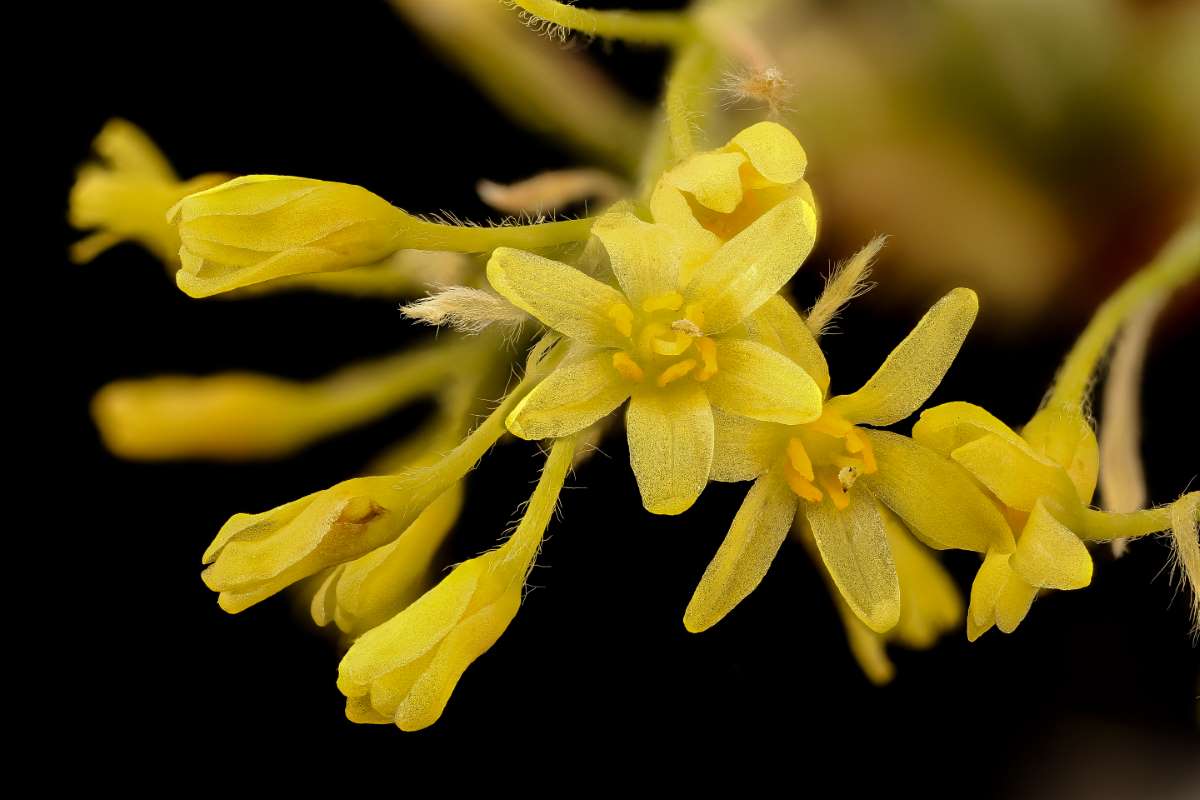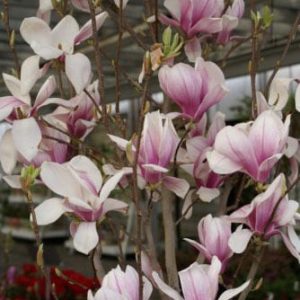Description
Sassafras –
There are 4 generally dioecious, deciduous trees that grow 50-120′ tall, of the laurel family, in this genus.They are found naturally occurring from woodland and thickets in Eastern Asia and Eastern North America.They are grown for their stately habit and glossy, aromatic, alternate elliptical to egg shaped foliage, which can be smooth edged or 1-3 lobed and both can appear on the same plant with downy undersides.The leaves color attractively in autumn.They have smooth orange-brown bark that matures to red-brown and deeply furrowed.Clustered racemes of small, yellow-green 5 petaled flowers are borne in spring, either before or as the leaves emerge.Where plants of both sexes are grown together, the flowers on female plants are followed inedible, oval blue-black fruits.Grow as specimen trees in a woodland garden or at woodland margins.All parts of the trees have spicy aroma that repels insects.
Grow in moist but well drained, moderately fertile, humus rich, preferably acidic , ddeep soil in full sun or partial shade. Prune suckers to promote a single trunk.
S. albidum – Common Sassafras – This irregular to rounded- pyramidal deciduous tree from Eastern North America grows 50-80′ feet tall and 50′ feet wide.It spreads through suckers, sometimes forming large colonies.It has thick dark, red-brown, deeply furrowed bark.It produces alternate, elliptic to oval, smooth edged or shallowly to deeply 3 lobed, aromatic dark green leaves,4-6″ long, with paler undersides.The leaves turn scarlet and orange in autumn.Tiny insignificant, yellow flowers are borne in racemes to 2″ across, in spring, as the leaves emerge.Male flowers have 9 stamens and females with 9 staminodes.If pollinated, the flowers on female plants are followed by red stalked, egg shaped, dark blue-black single seeded fruit, to ½” long.
Zones 4-8





